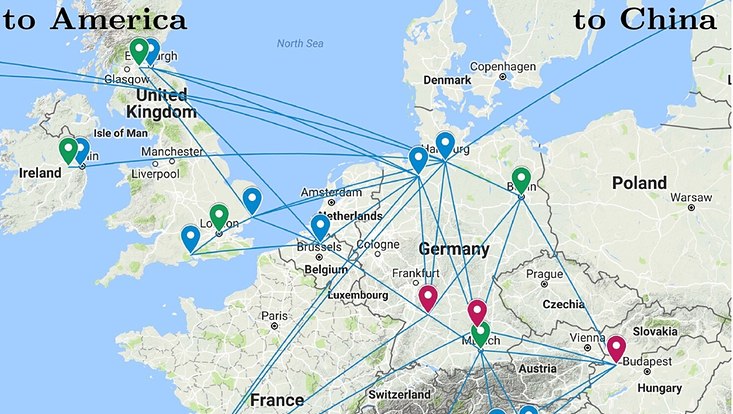Systems
New open-access paper: Catastrophe insurance and flexible planning for supply chain disruption management: a stochastic simulation case study
16 February 2023, by Julia Bachale

Photo: IWI UHH
A new paper with the title "Catastrophe insurance and flexible planning for supply chain disruption management: a stochastic simulation case study" , which was created in cooperation between researchers from the University of Leiden, UC Davis and the IWI at the UHH, has been published in the European Journal of Operational Research. The article, written by Yingjie Fan, Frank Schwartz, Stefan Voß und David L. Woodruff, is available as an open-access version. For accessing the paper, please click here.
Abstract
Catastrophe-related insurance (e.g. business interruption insurance) is an effective financing tool for global corporations to reduce economic losses caused by high impact events. Flexible operational planning is an often-used tool enabling rapid adjustment of operational plans for reducing catastrophe-related damage costs. The interaction between catastrophe insurance and flexible operations planning has rarely been studied. In this paper, we develop a stochastic programming model for a multi-echelon global supply chain network that we solve to investigate the impact of purchasing catastrophe insurance on supply chain operational planning in a catastrophe-prone environment. Computational simulations are developed for evaluating solution quality and measuring catastrophe-related damage costs. We find that it may be optimal for supply chains to scrap redundant products in catastrophes when customer demand falls below the expected level. Purchasing catastrophe insurance may encourage supply chains to scrap more products, which results in more catastrophe-related damages. From analysing supply chain costs, catastrophe-related damage costs, and operational plans, we find that a higher compensation rate of catastrophe insurance triggers more production activities being planned at the vulnerable node just before the vulnerable time period, especially for low residual value products. Finally, we give managerial insights to help reduce unnecessary damages in catastrophes.


